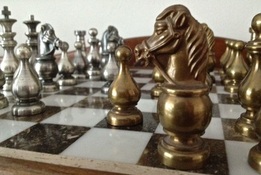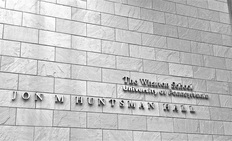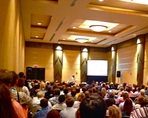
Does innate ability limit level of performance or is level of performance more a function of deliberate practice? Deliberate practice is defined as “engagement in structured activities created specifically to improve performance in a domain” (p. 1608).
Ericsson, Krampe, and Tesch-Römer (1993) found the average amount of deliberate practice for the best violinists at age 20 was around 10,000 hours. The least accomplished violinists had less than 5,000 hours. Malcolm Gladwell in Outliers popularized this “10,000 hour rule” using the Beatles and Bill Gates as examples, among others.
Macnamara et al. found over 9,000 potential articles for their study but only 88 met all criteria for inclusion in the meta-analysis. Their study looked at 111 independent samples totaling over 11, 000 participants.
The results? Deliberate practice overall was positively correlated with performance, but not as strongly as might be expected from claims in the literature – “deliberate practice explained 12% of the variance in performance” (p. 1612). Deliberate practice accounted for different amounts of the variance in performance in different activities:
- Games (e.g., chess) – 26%
- Music – 21%
- Sports – 18%
- Education – 4%
- Professions – less than 1%
My take-away:
I discussed the 10,000 hour rule and Ericsson et al.’s research in a blog in September 2013. My thoughts remain the same. Practice may not make perfect but it helps – and the more practice, the better the performance – but with some activities there will be innate limitations on the heights performance can reach. For leaders and managers, Mary Follett talked about improving performance almost 100 years ago. If you want to be a better leader, or follower, you must reflect on how others respond to your behaviors, form hypotheses, and continually test these hypotheses, learning from your experiences. It is not deliberate practice but it is a deliberate learning strategy by which we can improve.
Ericsson, K. A., Krampe, R. T. & Tesch-Römer, C. (1993). The role of deliberate practice in the acquisition of expert performance. Psychological Review, 100 (3) 363-406.
Gladwell, M. (2008). Outliers: The story of success. New York: Little, Brown and Company.
Macnamara, B. N., Hambrick, D. Z., & Oswald, F. L. (2014). Deliberate practice and performance in music, games, sports, education, and professions: A meta-analysis. Psychological Science, 25(8), 1608-1618.
Image: "The Wedding Gift" ©John Ballard, 2013.




 RSS Feed
RSS Feed